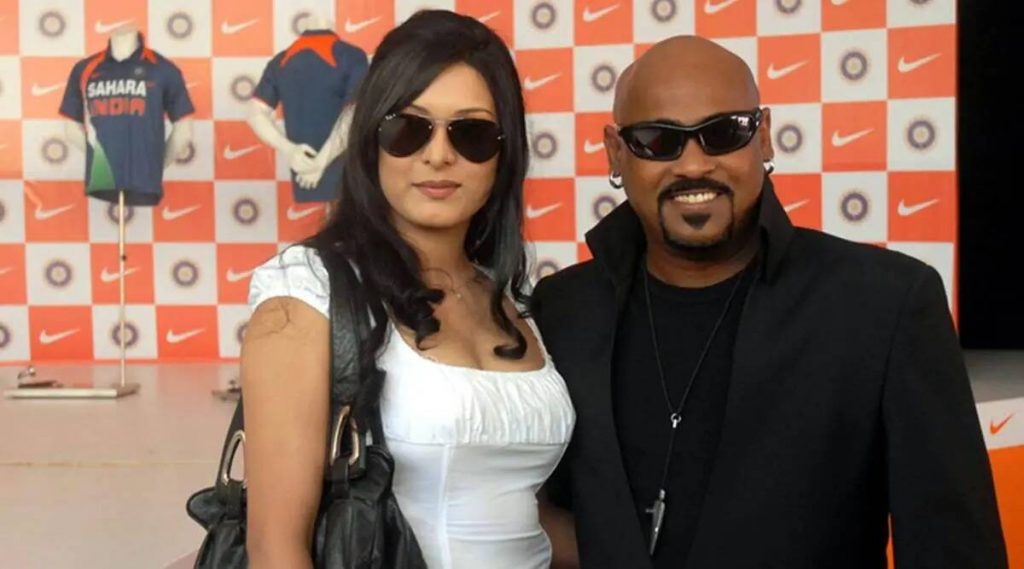When it comes to celebrities, the law enforcing agencies should haul them up for domestic violence perpetuated by them because being role models, they have an onus of impeccable behaviour.
“Kabhi kabhi aisa hota hai ke neend nahi aati to main bhoot ki tarah ghoomta hoon. Kabhi upar chala jatta hoon, kabhi neeche aa jaata hoon”: At night when sleep eludes me, I wander around like a ghost. Sometimes I head upstairs, else I come down.
It is a sprawling mansion and only two people live there: the third is fighting a legal battle over her entry and entitlement.
The dramatis personae: Nawazuddin Siddiqui who is a well-known name in the Hindi film industry; his mother Mehroonisa and his estranged wife, Aaliya.
While on parents, Siddiqui named his house after his father, Nawab.
Dubbed as his “own Taj Mahal”, the mammoth structure in white stands tall on Yari Road in Mumbai. It has half a dozen bedrooms, a few halls and enough open space. If Siddiqui’s words are anything to go by, he had “every inch of the dream house” etched in his mind because he wanted every brick and every stone to remind him of his village, Budhana in the state of Uttar Pradesh.
His personal bathroom in his Mumbai home, he said, is bigger than the entire home in his village: “Aaj jitna bada mera personal bathroom hai, utnasa mera ghar hua karta tha.
Yet today the watchman turned chemist turned successful actor is unable to make use of that bathroom or the home he passionately built. If reports are anything to go by, Siddiqui has shifted to a hotel.
Till the time of going to Press, the cops had invaded the house and Siddiqui’s whereabouts were unknown.
His estranged wife had alleged cruelty and insult to her modesty under relevant sections in the law.
Nawaz’s mother, she has said, had locked her out and denied entry into the bedroom that is rightfully hers.
Consequently, she has been forced to use the living room and convert the sofas into a bed. She was also denied access to the bathroom. To give credence to her claims, Aaliya has posted videos showing security guards denying access to her and her children.
If the bathroom is the focus in the battle the Siddiquis are locked in with Aaliya, a frying pan story was unfolding in another celebrity home.

This time around it is a sportsperson who is in the eye of a storm: Indian cricketer Vinod Kambli.
The Mumbai Police have registered an FIR against him for allegedly assaulting and abusing his wife under the influence of alcohol. Kambli’s wife has alleged that he threw the handle of a cooking pan at her, following which she suffered a head injury.
The incident took place when Kambli, allegedly under the influence of alcohol, started abusing his wife.
Their 12 year-old son tried to intervene, but Kambli went into the kitchen and allegedly flung the broken frying pan at his wife.
The relevant sections in the complaint include voluntarily causing hurt by dangerous weapons and intentional insult with intent to provoke breach of peace.
Simply put all this amounts to cruelty and mental and physical torture.
If Siddiqui’s actions have inflicted mental torture on Aaliya, then Kamble has physically abused his wife.
Also the adverse effect on a 12-year old witnessing his father physically abusing his mother is something that can neither be condoned nor forgiven.
If Kamble’s son was witness to the goings-on in their home, Aaliya’s kids were subjected to seeing their mother’s altercation with the security guards.
Therefore if cases of domestic violence are to be investigated, then the psychological effect on children should be part and parcel of such cases.
It is not enough to treat all cases at par given that kids who grow up seeing violence at homes have issues that they have to grapple with throughout their lives.
Therefore the law, however, fool-proof it may be on paper needs to take cognizance of the adverse impact violence can have on kids, especially domestic violence.
The insecurity a child can face when parents are fighting is something that can irreparably damage the psyche of an adolescent or even a young adult.
Also, when it comes to celebrities, the law enforcing agencies should come down heavily on domestic violence perpetuated by them because being role models, they have an onus of impeccable behaviour. It is they the society, particularly impressionable minds, look up to and often emulate. Therefore the if they can why can’t we syndrome kicks in more swiftly in the case of celebrities than those who lead normal, mundane and often unglamorous lives.
It is no one’s case that celebrities should be crucified for bad behaviour but it sure makes sense if they are under more scrutiny than ordinary mortals so to say. Since they are hero worshipped, their accountability is greater and so are the pressures for acceptable and civil behaviour both at home and outside.
What is, however, alarming is that the incidence of celebrities involved in domestic violence is rather high instead of such cases being far and few.
A quick look throws up known Bollywood names like Aditya Pancholi, Om Puri, Shiney Ahuja and even Rajesh Khanna among others.
If Rajesh Khanna’s live in partner had accused him of molestation, Om Puri’s wife Nandita not only alleged domestic violence but also accused him of making sexual advances towards his maid.
While on household help, Pancholi was accused of allegedly raping his girlfriend’s 15 year old maid. Ditto Shiney Ahuja who was accused of rape by his domestic help.
Even though there is an act in place, there is a big question mark on how relevant and effective it is. This is not to say that women were better off without it. In fact it is a safety shield but had it been endowed with more protective layers, things would have been much better in terms of the situation on the ground.
Therefore even without undermining the Government’s effort and the legal framework that is in place, many more correctives are required: correctives that would make men cringe and think several times before raising a hand at home.
It is in this context that the role of National Commission of Women comes into play.
The statutory body set up some 20 years ago has failed to check crimes against women. The toothless body, to quote one of its own members, are up for the task of “chewing without teeth”.
Apart from issuing summons, the Commission can do precious little. Its mandate is purely recommendatory and it does not have the powers to penalise or punish anyone. On that count, its “hands are tied”.
Therefore if the Commission’s hands are tied it gives enough leeway to men to let loose their hands on women at home.
Add to that, the slow pace of investigations by the Police and the tardy judicial process, it is a kind of free for all thus leaving women kind of helpless and at the mercy of those they seek protection from.
Having said that it must be pointed out that the onus to better the situation of women is not solely on the Government. Neither does it rest on the fragile shoulders of women alone.
It is necessary to strip the men of their sense of entitlement and to publicly name and shame deplorable acts committed by them be it in the precincts of their home or outside.
Towards this end, it is the society which must stand together and use the frying pan on the errant man’s head rather than it being the other way around. Till that happens women will knock at police stations, that is if they dare to or be shut out from homes which are rightfully theirs through marriage.












